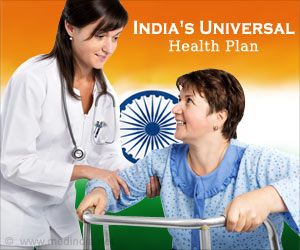A state-level committee will be constituted to decide the awards ranging from Rs.2 lakh to Rs.50 lakh based on the state or district level categories.

The initiative also aims to provide incentives to facilities that show exemplary performance in adhering to standard protocols of cleanliness and infection control.
They have also planned to inculcate a culture of ongoing assessment and peer review the performance related to hygiene, cleanliness and sanitation.
Under the health secretary or mission director a state-level award committee will be constituted while a three to five-member committee at the district level will be constituted under the district magistrate or the Chief Medical Officer (CMO).
The awards will be announced for the ‘Best two district hospitals in each state’, ‘Best two Community Health Centres’ (CHC) or sub-district hospitals and one award for ‘Primary Health Centre in every district’. "Assessment would be done sequentially through a three tier system - Internal assessment followed by Peer assessment and then external assessment," Health Ministry said.
Source-Medindia
 MEDINDIA
MEDINDIA




 Email
Email






